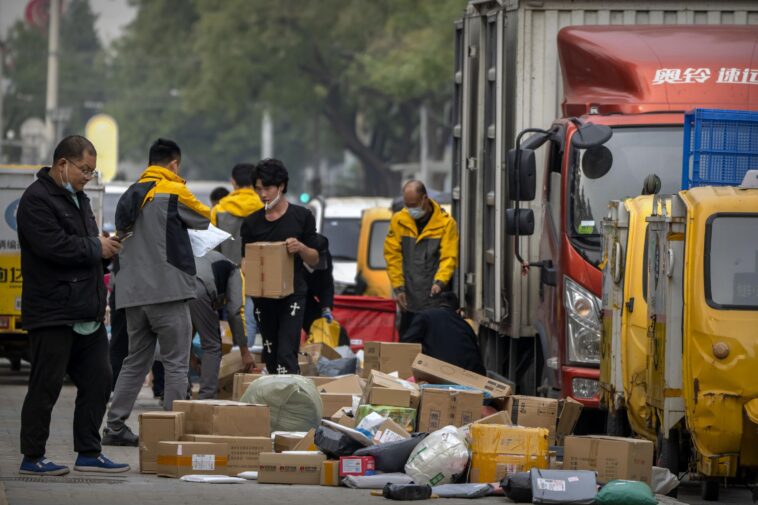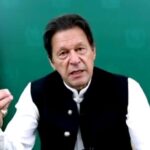2022 was the second-worst year for China’s economy since at least the 1970s
Beijing: The two sessions of the Chinese Communist Party’s (CCP) highest political meeting began on March 4 and are anticipated to last two weeks. The regime has set the lowest gross domestic product (GDP) target in years for 2023. It also announced a 7% increase in military expenditure, the second largest increase in the past five years, according to NTD.
NTD is a global television network based in New York that was founded in 2001 by Chinese-Americans who fled communism. They understood the importance of independent media to a free society.
Li Keqiang, the regime’s outgoing premier, delivered his final “Government Work Report” on March 5 during a meeting in which China’s economic growth (GDP) target for this year was set at approximately 5%, which was lower than expected by the outside world.
NTD reported that 2022 was the second-worst year for China’s economy since at least the 1970s, trailing only 2020 during the peak of the COVID-19 pandemic due to the severe regime’s “zero-COVID” policy and control measures.
Since 2010, China’s GDP growth rate has decreased quarter by quarter, falling from 12.2% in the first quarter of 2010 to 6% in the fourth quarter of 2019. The “Government Work Report” issued by the ruling CCP sets economic growth rate targets of 6%, 5.5%, and 5% for the years 2021 through 2023.
Even with the lowered target rate, in 2022, due to factors such as the pandemic, the impact of stringent lockdowns on industries and consumption, and the international political situation, the final reported GDP growth was only 3%, which was significantly lower than anticipated.
While commercial real estate is declining, residential real estate development has reached a point where no one wishes to purchase a home. In third- and fourth-tier communities, real estate is a calamity. The manufacturing and export industries along the prosperous littoral regions of China are also ailing.
Fujian is a significant manufacturing and foreign trade province in China, selling light industrial goods such as footwear, apparel, textiles, and food to domestic and international markets. The proprietors of a number of regionally based private manufacturers have conveyed to the media a sharp decline in product orders.
Economic Observer.com reported on March 2 that, according to a recruitment agency, many factories in Suzhou and Kunshan have reduced their recruiting of new employees. Some factories that recruited 200-300 workers per day two years ago now recruit only 20-50 workers per day.
The Chinese government cannot save the economy. During the Two Sessions, CCP leader Xi Jinping is anticipated to appoint an economic team that will be headed by the new premier, Li Qiang.
The Chinese government also announced an increase in military expenditures on March 5; this year’s military budget is 1.553.7 trillion yuan ($224 billion), an increase of 7.2% annually and the second-largest increase in the past five years. In the context of the escalation over Taiwan, intensified regional conflicts, and international unrest, the CCP’s military budget has increased steadily over the past few years despite a lethargic economy, causing international concern.
The CCP has announced that China’s defence budget will increase by 7.5%, 6.6%, 6.8%, and 7.1% annually from 2019 to 2022.
According to World Bank statistics, China’s military expenditures accounted for 1.7% of its gross domestic product last year. In contrast, the U.S. military budget, which fulfils numerous international security obligations, accounted for 3.5% of its GDP.
Wang Chao, a spokesman for the CCP’s National People’s Congress, stated on March 4 that the increase in the regime’s defence budget is “relatively moderate and reasonable” and is “not only for the need to address complex security challenges, but also the need to fulfil the responsibility of a major country.”
Due to safety concerns, Wang, an observer from mainland China, stated that the CCP’s purported objective is to export disasters to the rest of the world.
Also read: Premium smart TV with the highest image quality in India for 2023
“They make no distinction between right and evil, such as when they provide economic support to Russia and when they support Russia’s invasion of other countries. I estimate that a significant portion of China’s financial resources have been used to support the Russian war effort.”
Su said, “The CCP’s military expenditure corresponds to its expansionist national strategy, which poses an imminent threat to the international community. The threat it poses over the Taiwan Strait is merely a component of its overall strategy.”




